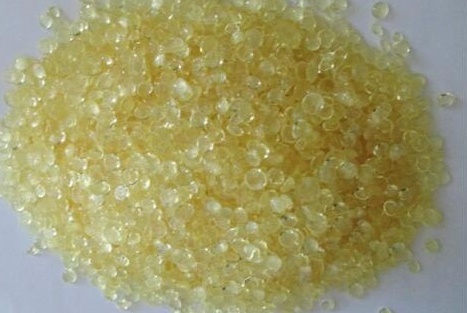Terpene resin Chemische Eigenschaften,Einsatz,Produktion Methoden
Chemische Eigenschaften
As essentially pinene polymers, principally polymers from β-Pinene, the terpene resins exhibit properties typical of polymeric hydrocarbons including chemical inertness. They are inert to dilute mineral acids, alkalies, and salt solutions, and are characterized by acid numbers and saponification numbers less than four and approaching zero. Similarly, they are resistant to heat over a wide range of temperatures, varying only in fluidity with temperature. The commercially available Polyterpene Resins are produced with a variety of softening points (measured by the A.S.T.M ring-and-ball method E28-51T), ranging from 10~135 °C, corresponding to a range from viscous liquid to hard, brittle solid polymers at ordinary temperatures.

Verwenden
Terpene Resin is a moisture barrier that is the betapinene polymer
obtained by polymerizing terpene hydrocarbons derived from wood.
it is used on soft gelatin capsules in an amount not to exceed 0.07%
of the weight of the capsule, and on powders of ascorbic acid or its
salts in an amount not to exceed 7% of the weight of the powder.
Terpene resin Upstream-Materialien And Downstream Produkte
Upstream-Materialien
Downstream Produkte

